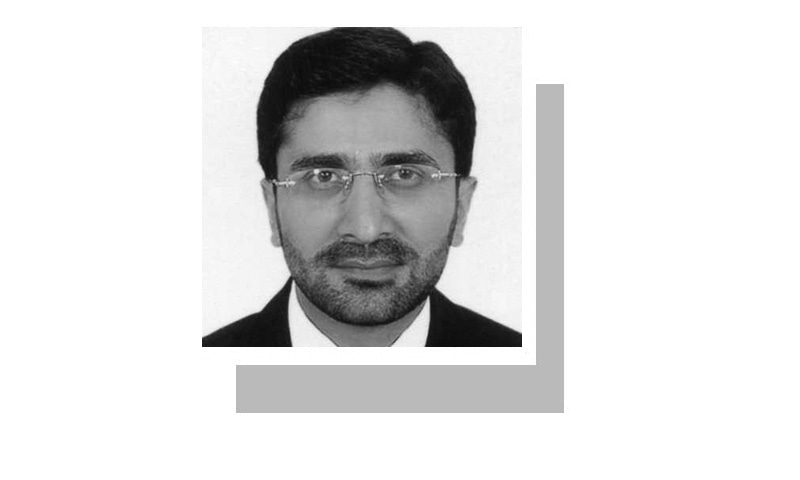
OUR country lies in one of the most vulnerable regions in the world in terms of global warming and climate change. To fight against global warming there needs to be a collective national response on the part of all stakeholders. Like policymakers, industry, academia and civil society, religious circles also have an important role to play.
The subject of caring for the environment is missing in the mainstream agenda and narrative of Islamic circles. Given their crucial role in influencing the trends and values from the grass roots to the national level, they need to rediscover the sublime teachings of Islam regarding sustainability and environmental friendliness.
Global warming, which is widely attributed to human activities especially the burning of fossil fuels, is resulting in catastrophic implications both on land (flooding, hurricanes, droughts and wildfires) and sea (melting of glaciers and sea level rise). The phenomenon of global warming has a striking resemblance with verse 41 of Surah Rum which states: “Corruption has appeared throughout the land and sea by [reason of] what the hands of people have earned so He may let them taste part of [the consequence of] what they have done that perhaps they will return [to righteousness]” (30:41).
The message of the Quran has been understood and interpreted to seek guidance on contemporary issues and challenges over 1,400 years and will continue to be the source of guidance. Global warming, therefore, appears to be a perfect reflection of the stated Quranic verse. The Quran offers insight not only into problems but also guides towards the best solutions.
Sustainability is a fundamental virtue of Islam.
The world has developed the consensus that environmental sustainability is the way forward to address the issue of global warming. In literal terms, the word ‘sustainability’ means the ability to be sustained. From the perspective of environmental sciences, sustainability means balance, equality and justice, as the definition of sustainable development goes: Sustainable development is the kind of development that meets the needs of the present without compromising the ability of future generations to meet their own needs.
Sustainability is one of the fundamental virtues of Islam and has been richly reflected upon in the Quran and Sunnah of the Prophet (PBUH). In Islam, adal is one of its core values. ‘Adal’ in different forms and meanings has been used 24 times in the Quran. Though the Quran mostly uses it to describe justice, adal has also been used to mean equality and balance respectively in Surah Namal (27:60) and Surah Infitar (82:7).
The Quran has, time and again, emphasised the need to have a balanced and conscious approach to life and to avoid wasting resources. It says: “O Children of Adam … eat and drink, but waste not by excess, indeed God likes not the wasters” (7:31). Quran also declares wasters as brothers of devils: “Indeed the wasteful are brothers of the devils. ...” (17: 27). Similarly, the Holy Book describes a characteristic of one of the worst opponents of Allah as being destructive to the environment: “And when he goes away, he strives throughout the land to cause corruption therein and destroy crops and animals; and Allah does not like corruption” (2:205).
The Prophet also put much emphasis on environmental sustainability both through his actions and words. As is evident from numerous ahadith, he fundamentally advocated respect for life; care for not only human beings but also animals, birds and plantation.
Two of the key dimensions of environmental sustainability are conservation of water and forestation/plantation as the world is suffering from water scarcity and deforestation. Regarding water, the Prophet advised: “Do not waste even if performing ablution on the bank of a fast-flowing large river” (Al Tirmidhi). Regarding forestation, he states: “If the Hour occurs and one of you holds a seed in his hand, then if he can sow it before the Hour occurs, he should do so” (Musnad Ahmad).
In literature on environmental sustainability, it is hard to find statements more powerful than the above two. After the Prophet, the spirit of sustainability was held steadfastly by his companions. Hazrat Abu Bakr used to order military commanders: “Bring no harm to the trees, nor burn them with fire, especially those which are fruitful.”
It is thus obvious that Islam strongly advocates for environmental stewardship. It is concerned not just about prayers, fasting and Haj but also about the duties of individuals towards the well-being of society at large as it declares the removal of a harmful object from a path a branch of the Islamic faith. A Muslim society, therefore, should be a role model in terms of tidiness, discipline and environmental sustainability. The situation, unfortunately, is the other way round. It’s time to reflect!
The writer is an energy and environmental scientist.
Published in Dawn, April 6th, 2018











































